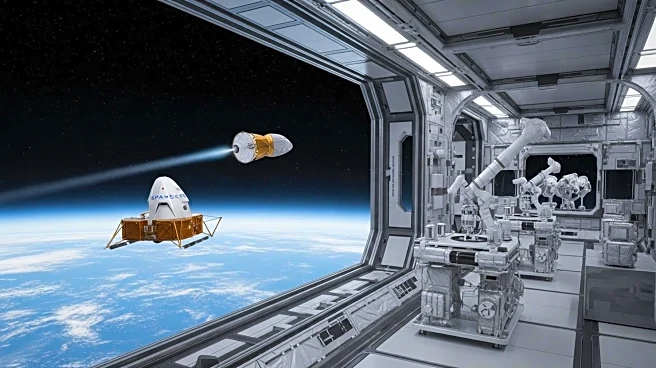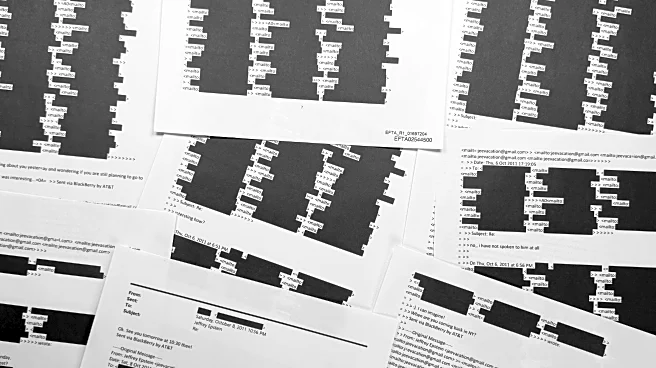What is the story about?
What's Happening?
NASA astronauts aboard the International Space Station are advancing bone cell research as part of Expedition 73. The crew, including NASA's Jonny Kim and JAXA's Kimiya Yui, are processing bone stem cell samples delivered by the SpaceX Dragon cargo spacecraft. These samples are treated with a therapeutic agent to study molecular changes in bones during spaceflight. The research aims to understand space-induced bone loss and protect crew health on long-duration missions. Additionally, the Dragon spacecraft boosted the station's altitude using its Draco engines, demonstrating its ability to maintain the station's orbit.
Why It's Important?
This research is crucial for ensuring astronaut health during extended space missions, which are essential for future exploration endeavors, including missions to Mars. Understanding bone loss in microgravity can lead to better preventive measures and treatments, benefiting not only astronauts but also individuals on Earth suffering from bone-related conditions. The successful altitude adjustment by Dragon also highlights the importance of maintaining the station's orbit for ongoing scientific research and international collaboration.
What's Next?
The bone cell samples will be returned to Earth for further analysis, potentially leading to breakthroughs in space medicine. The crew will continue unpacking supplies from Dragon and conducting various scientific experiments. The station's altitude maintenance will support future missions and experiments, ensuring the continued success of the ISS as a hub for international space research.
















